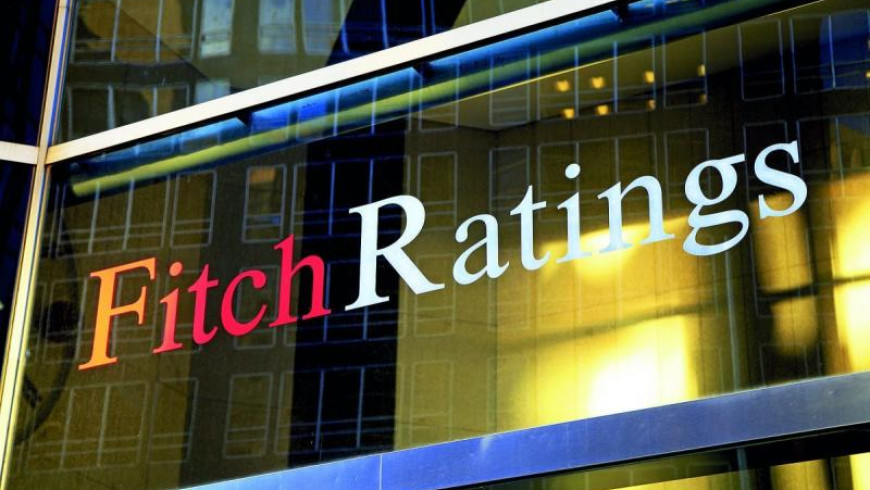
Standard & Poor's recently affirmed all its ratings on the Republic of Cyprus, including its single-'A'/'A-1' foreign-currency and double–'A'–minus/'A-1'-plus local-currency sovereign credit rating. The outlook is stable. The ratings on Cyprus are supported by:
· Recent progress in fiscal consolidation. A general government deficit equivalent to 2.6% of GDP is estimated in 2001, compared with 5.2% as recently as 1997.
· Commitment to structural reform, underpinned by Cyprus' EU aspirations. Motivated by the prospect of EU accession, Cypriot policymakers will continue to advance fiscal consolidation and structural reforms despite the uncertain global economic outlook.
· A relatively wealthy economy, supported by a track record of low and stable inflation. At an estimated $13,460, GDP per capita is more than 80% of the EU average, and remains high among similarly rated sovereigns.
The ratings on the Republic are constrained by:
· The increased risk of systemic stress in the banking sector. Although expected to stabilize in 2002, net banking sector external liabilities have doubled over the past five years to an estimated 56% of exports in 2001. During the same period, credit growth has averaged 13% annually.
· Weak external liquidity. Cyprus' short-term debt financing burden, and its gross external financing gap (current account deficit plus long-term principal repayments and short-term debt), at 175% of exports and 331% of reserves, respectively, are substantial.
· The need for further fiscal consolidation. General government deficits averaging 4.1% over the past five years have increased the general government debt burden to close to 60% of GDP.
· The vulnerabilities posed by a small open economy. Cyprus' $9 billion economy depends heavily upon tourism and financial services, both of which are influenced by international developments. A sharp decline in tourism could undermine balance of payments stability, dampen growth prospects, and place pressure on the pegged exchange rate.
The prospect of EU accession continues to sustain the momentum behind wide-ranging structural reforms, including the liberalization of financial and capital markets, central bank independence, and the removal of public monopolies in various sectors. The removal of the interest rate ceiling on Jan. 1, 2001, strengthened monetary policy implementation. The decision was accompanied by the widening of the Cypriot pound's effective fluctuation band against the euro, and sustained by moderating economic growth.
Despite the potential challenges posed by downside risks to the tourism sector, EU accession will remain a key policy target, ensuring the continuation of structural reforms and the maintenance of fiscal discipline. Although Cyprus's external liquidity indicators are weaker than in most similarly rated countries, they remain manageable. Failure to maintain macroeconomic and financial stability in the context of further liberalization of the capital account could undermine the sustainability of the exchange rate peg, and place downward pressure on the rating. Timely implementation of further structural reforms and continued fiscal consolidation, therefore, remain central to maintaining Cyprus's credit standing.
· Recent progress in fiscal consolidation. A general government deficit equivalent to 2.6% of GDP is estimated in 2001, compared with 5.2% as recently as 1997.
· Commitment to structural reform, underpinned by Cyprus' EU aspirations. Motivated by the prospect of EU accession, Cypriot policymakers will continue to advance fiscal consolidation and structural reforms despite the uncertain global economic outlook.
· A relatively wealthy economy, supported by a track record of low and stable inflation. At an estimated $13,460, GDP per capita is more than 80% of the EU average, and remains high among similarly rated sovereigns.
The ratings on the Republic are constrained by:
· The increased risk of systemic stress in the banking sector. Although expected to stabilize in 2002, net banking sector external liabilities have doubled over the past five years to an estimated 56% of exports in 2001. During the same period, credit growth has averaged 13% annually.
· Weak external liquidity. Cyprus' short-term debt financing burden, and its gross external financing gap (current account deficit plus long-term principal repayments and short-term debt), at 175% of exports and 331% of reserves, respectively, are substantial.
· The need for further fiscal consolidation. General government deficits averaging 4.1% over the past five years have increased the general government debt burden to close to 60% of GDP.
· The vulnerabilities posed by a small open economy. Cyprus' $9 billion economy depends heavily upon tourism and financial services, both of which are influenced by international developments. A sharp decline in tourism could undermine balance of payments stability, dampen growth prospects, and place pressure on the pegged exchange rate.
The prospect of EU accession continues to sustain the momentum behind wide-ranging structural reforms, including the liberalization of financial and capital markets, central bank independence, and the removal of public monopolies in various sectors. The removal of the interest rate ceiling on Jan. 1, 2001, strengthened monetary policy implementation. The decision was accompanied by the widening of the Cypriot pound's effective fluctuation band against the euro, and sustained by moderating economic growth.
Despite the potential challenges posed by downside risks to the tourism sector, EU accession will remain a key policy target, ensuring the continuation of structural reforms and the maintenance of fiscal discipline. Although Cyprus's external liquidity indicators are weaker than in most similarly rated countries, they remain manageable. Failure to maintain macroeconomic and financial stability in the context of further liberalization of the capital account could undermine the sustainability of the exchange rate peg, and place downward pressure on the rating. Timely implementation of further structural reforms and continued fiscal consolidation, therefore, remain central to maintaining Cyprus's credit standing.














 3287.99
3287.99 1275.09
1275.09
